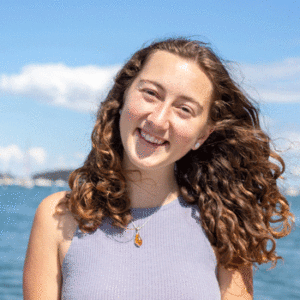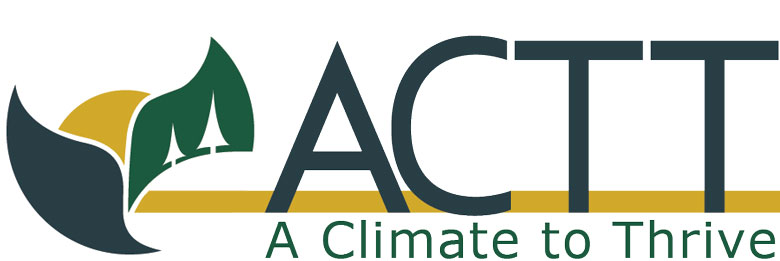Reflections is written by Island Institute Fellows, recent college grads who do community service work on Maine islands and in coastal communities through the Island Institute, publisher of The Working Waterfront.
A chorus of voices voting yes at town meeting—voting to adopt the community resilience plan I spent my fellowship creating for Tremont—was the sweetest sound I heard this summer. But the successful passage of this roadmap to a more climate resilient future, with only one vote opposed, is just one of the treasures offered by my last months on Mount Desert Island.
I marvel at others as they pile up in the library: Live fresh lobster from three different lobstermen; 8 yards of screened loam, delivered locally; two years of free oil changes from the garage down the street; a hand-knotted rug picturing the harbor; a fruit pie from the market; pet grooming; guitar lessons…
These gifts from our community are for a fundraising raffle that will shore up the library’s resilience. They might turn into a generator, into workforce support, a tool library, or a community check-in network.
Perhaps I’m over-romanticizing a simple raffle. But in my last days as an Island Institute Fellow, I can’t help but see it as an example of exactly what island communities do on our best days—weave together our eclectic offerings into something that is of service.
Our community resilience plan was created this way, with residents offering what they had to give, their knowledge of history and place…
Our community resilience plan was created this way, with residents offering what they had to give, their knowledge of history and place, their ideas and visions, and what they valued. Community scale change building is scrappy, fickle, and tenuous. It wasn’t a foregone conclusion that this plan would pass a democratic vote.
Success hinged on a hundred small actions by a gathered group of neighbors, the introductions they made, their cautionary tales, their willingness to listen. It might not have happened without the school newsletter, the free use of the legion hall, the potluck food, the people who took a survey, took photos after the storm, or who knew how to cut through the fog and reach a neighbor with whom they’re at odds.

Success hinged on these champions, these partners, these neighbors, and leaders—on these many generosities, both loud and quiet. Our work towards the future is made possible by this often-invisible web of care. We rely on it, whether we see it or not. I think we see it on islands more often. We feel it draw tight around us, in hard times and in times of upheaval and change.
Here’s another gift from this summer: local contractors who donated their labor and time to repair the road to Seawall which had been closed since the January storms. This week we watched the first cars drive through, trailing behind fire engines, horns blaring, in an impromptu parade.
Amidst my joy that we are reconnected to this much-loved place and that businesses get a reprieve from the closure’s impact, I also find my chest tight, knowing this won’t be forever. Knowing another storm’s devastation will likely come, that we will have to negotiate this again, trusting that we will.
This August, I’m holding all these truths at the same time—a road that we gratefully travel together, for now, with no guarantee of what the future may hold. A plan, created by this community’s vision, now in its hands as I bid it goodbye for now. An abundance of gifts, gathered in the little library, generosity bent towards a shared purpose—a purpose that I am so lucky to have shared.
Brianna Cunliffe works with A Climate to Thrive on Mount Desert Island focusing on education and community-based climate action. She graduated from Bowdoin College with a degree in environmental studies and government.





